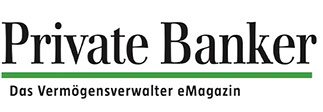

Value Column by Hans Peter Schupp
30 SEPTEMBER 2025
Beautiful daughters – hidden assets within the group
Hans Peter Schupp, managing partner of Fidecum AG and portfolio manager of the Contrarian Value Euroland Fund (ISIN: LU0370217092), on special investment opportunities.
Sometimes investors are so fixated on a company’s core business that they fail to notice its hidden treasures, its subsidiaries, or ignore them in their analysis. This can sometimes result in particularly interesting investment opportunities. In the ideal case, the subsidiaries are worth more than the entire group – and the core business is essentially a bonus on top.
We have described such opportunities before, using the examples of Salzgitter (ISIN: DE0006202005) and Eni (ISIN: IT0003132476). Now we have discovered another particularly striking example: Quadient (ISIN: FR0000120560), formerly Neopost.
An old, unspectacular core business …
The French company’s core business is franking machines. Of course, expecting significant growth in this area is about as realistic as hoping for an expansion in carriage manufacturing after the invention of the automobile. However, it is not a business that will disappear overnight.
The devices—mostly small machines—are leased for 20 to 30 euros per month. When the contract expires, it is usually simply renewed. The amounts are too small and the savings potential for customers is negligible.
As a result, in 2024, three decades after the widespread adoption of email, Quadient still generated €730 million in revenue with its franking machines and earned €200 million in EBITDA.
… is complemented by new, attractive business areas
Well knowing that franking machines are not a market with a future, Quadient began diversifying its business more than ten years ago.
On the one hand, the company now operates around 25,000 parcel stations in France, the UK, and Japan—an attractive business segment that reached EBITDA breakeven in 2024 and was profitable in the first half of 2025. An EBITDA margin of more than ten percent is expected to be achieved there in 2026.
The digital division has developed into an even more valuable subsidiary. It offers companies tools that help them quickly bring their often-outdated customer communications into the digital present. Invoices, letters, and documents are no longer sent only on paper, but are made available digitally – via email, web portals, or apps. The new e-invoicing requirement is acting as an additional growth driver here.
At the beginning of August, it became clear just how sought-after this field is today when private equity firm Cinven took over Quadient’s competitor Smart Communications. Naturally, the terms of the deal were not disclosed. Nevertheless, the Bloomberg news service circulated a figure: $1.8 billion. For what? Hidden behind the discreet name Platinum Topco (UK Company number: 10340885), the company publishes its consolidated financial statements. These show that Cinven paid the hefty price for $51 million in EBITDA in 2024.
By way of comparison, Quadient earned €47 million, or around $55 million, with its digital division last year. The Quadient subsidiary is therefore practically on a par with its competitor.
The valuation of Quadient
We did the math: The entire Quadient Group is currently valued at €1.26 billion on the stock market (to determine this value, we added net debt of €710 million to the market capitalization of €550 million). That is just under US$1.5 billion, or US$300 million less than Cinven paid for Smart Communications alone.
Some may suspect that the private equity firm paid far too much. But in our experience, these managers know exactly what they are doing. The fact is that, as equity investors, we can now buy a comparable digital business much more cheaply and not only get 25,000 profitable packing stations, but also countless franking machines, which the company expects to still be generating $600 million in profitable revenue in 2030.
Our investment approach
For 25 years, our Contrarian Value Euroland Fund (ISIN: LU0370217092) has remained model consistent. We invest in undervalued European companies with solid business models and a decent potential. We think like entrepreneurs buying an entire company—and, if necessary, we go against the market.
About the author:
Hans Peter Schupp is a managing partner at Fidecum AG and portfolio manager of the Contrarian Value Euroland Fund.
Convenience translation!
